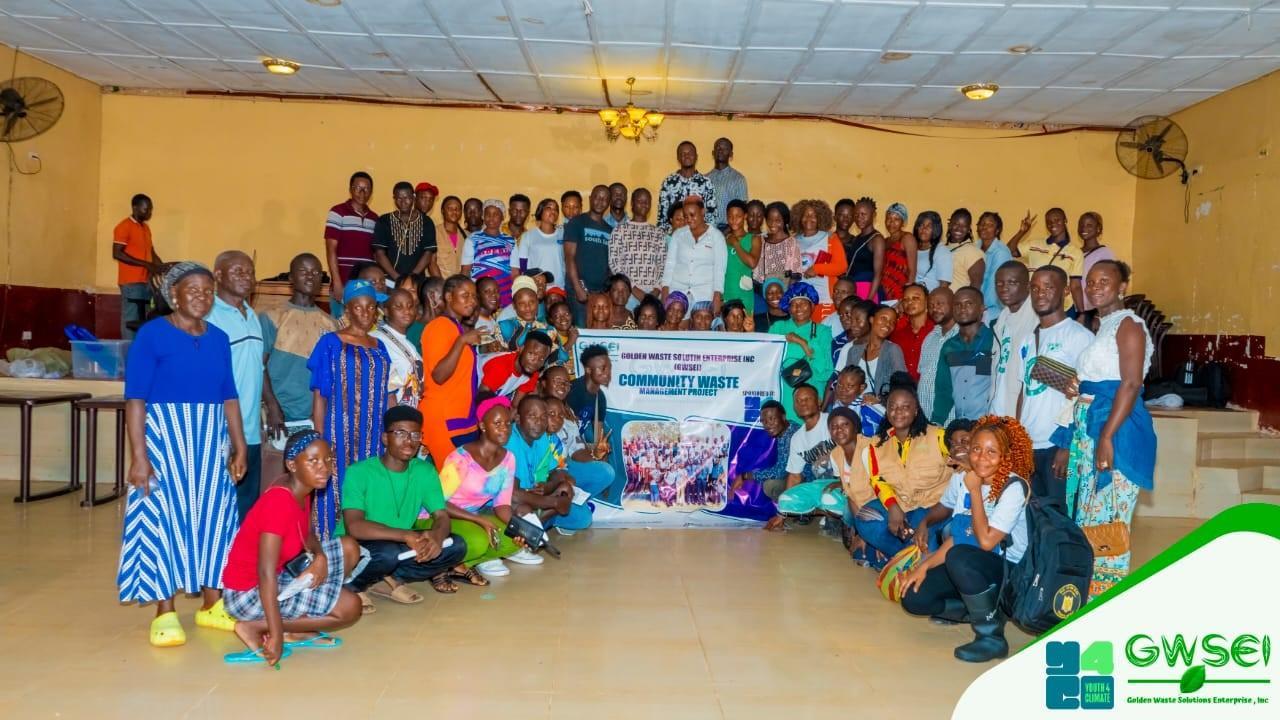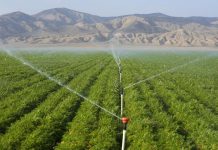Africa-Press – Liberia. Over 100 community members in Pipeline and 72nd Communities in Paynesville have benefitted from a daylong training in waste management, aimed at enabling them to curb the stockpile of waste in their environs but to use it for economic gains.
The community dwellers were taught how to sort waste properly and produce it into biodegradable compost as well as plastic design materials.
The training is the second phase of the Golden Waste Solutions Enterprise Inc., through its Community Waste Management Project which is focused on advancing endeavors to address pressing issues of waste management in Paynesville City and its environs.
As an initial phase of the organization’s Community Waste Management Project, Golden Waste Solutions Enterprise Inc., trained 105 students from various schools in Paynesville, equipping them with the knowledge and skills to become champions of sustainable waste management within their respective communities.
However, the second phase, which targeted community members in the three communities as well as other organizations passionate about waste management or related issues, was organized on the 31st of October which coincided with World Cities Day, with a primary focus on the youth.
On the other hand, Liberia is faced with improper waste management, which is resulting in public health threats and the need to address them remains a key emphasis of
Golden Waste Solutions Enterprise Inc.
Hence, Ms. Kadiatu A Sheriff, the President of the group sees the need for a concerted effort to tackle improper waste management thus engaging various sectors in the country.
The second phase of the project began with a stakeholder engagement to brainstorm on needed strategies to address the said concern.
Madam Sheriff told the gathering of majority women that having an understanding of waste management is important to their everyday lives and would also empower them economically.
As such, she encouraged the community members who benefitted from the training to serve as ambassadors of change in their respective communities.
She explained that this is not just limited to community dwellers, but has also trained students and will also target more marketers who are contributors to a stockpile of waste in the country.
Sheriff said it was important that these community members participate in the training because most of the waste is produced from various homes within various communities.
Miss Sheriff said the project has its focus of reaching a total of 420 beneficiaries by the end of its implementation. So far, more than 210 individuals from Paynesville’s schools and communities particularly in 72nd, Pipeline and Police Academy have been trained in recycling and composting with key emphasis on reaching an additional 210 individuals from Paynesville markets, homes, and students which will amplify the project.
This expansion, according to her, will ensure that the beneficiaries extend beyond the communities, engaging a broader cross-section of the society.
She believed this comprehensive approach would create a ripple effect, empowering diverse stakeholders to adopt and champion sustainable waste management practices.
As she initially highlighted during the first phase the success of the project will thus far be possible through strong collaborative partnerships that will be established with the community members.
Her Organization Golden Waste Solutions Enterprise Inc. is ensuring they build on these foundations, as they continue to explore opportunities to forge new alliances with community-based organizations, waste management companies, and local authorities.
In these partnerships, she maintained, would provide support and ensure the long-term sustainability of the project.
“By aligning with key stakeholders, the team can better coordinate efforts, share best practices, and create and recommend a cohesive framework for waste management in the Paynesville region,” Miss Sheriff added.
Many of the participants expressed their concerns regarding the community waste management issues. For instance, a lady from the pipeline community noted “There are no station points and very few stationary containers for waste disposal and collection along major streets and in our community. This makes it difficult for us to throw our waste the right way.”
Owen Nyangbeh shared financial constraints are a big issue for many of us while most of them acknowledge that the techniques introduced during the training were new to them. He further said, “We are eager to learn and implement these new waste management techniques, but without financial support, it’s difficult for us to make many changes.”
When asked about their current waste disposal methods before the practical training, the responses varied widely.
An unrecognized lady said, “I usually bury my waste because I don’t know what else to do. Meanwhile, another lady mentioned,” Sometimes we give our waste to zogos (disadvantaged youth commonly referred to as Zogos), but their methods are often unsafe, and it can lead to arguments in our community.”
An elderly man, Nicholas G. Does, said “I put my dirt in the sun for it to dry. In the late evening, I burn it.” Another lady from the community also said the same thing.
In response to the many concerns of the participants, Ms. Kadiatu A Sheriff said the institution recognizes that these concerns are valid and require a collaborative approach.
“We acknowledge the critical role of government and local authorities in establishing waste disposal stations and providing other forms of support for sustainable practices. We are committed to facilitating dialogues between community members and local government to advocate for the establishment of more collection points. Additionally, we plan to explore meaningful partnerships with financial institutions to develop initiatives that can support community members in adopting the new waste management learned during the training.”
The chairman of 72nd, Mr. Senesie Sesay, expressed great enthusiasm for the project, stating, “I am eager to extend these waste management techniques to all dwellers in our community. We must work together to create a cleaner and healthier environment for everyone.” His commitment to ongoing efforts reinforces the importance of collective action in addressing these challenges.
Some leaders from collaborating organizations declared interest in future collaboration or implementing this approach under their organization. Alice K. Nyeswah shared, “My experience during the training was great, I never thought I would learn these new techniques before this training, but here I am, learning how to turn organic into rich compost, and my intention now is to leverage this and implement it under my organization.”
During the implementation of the first phase, Ms. Sheriff told the media that
“The ultimate goal is to create a replicable model of community-driven waste management that can be scaled and implemented in other parts of Paynesville and beyond. By empowering individuals, fostering collaborative partnerships, and continuously improving the project’s approach, the community waste management initiative is poised to drive sustainable change and transform the way waste is managed in the region.”
Miss Sheriff noted that the success of the project will be made possible if regular data are collected and analysis is done to help identify areas of success and opportunities for improvement, allowing the project to adapt and refine its strategies as needed.
For More News And Analysis About Liberia Follow Africa-Press






